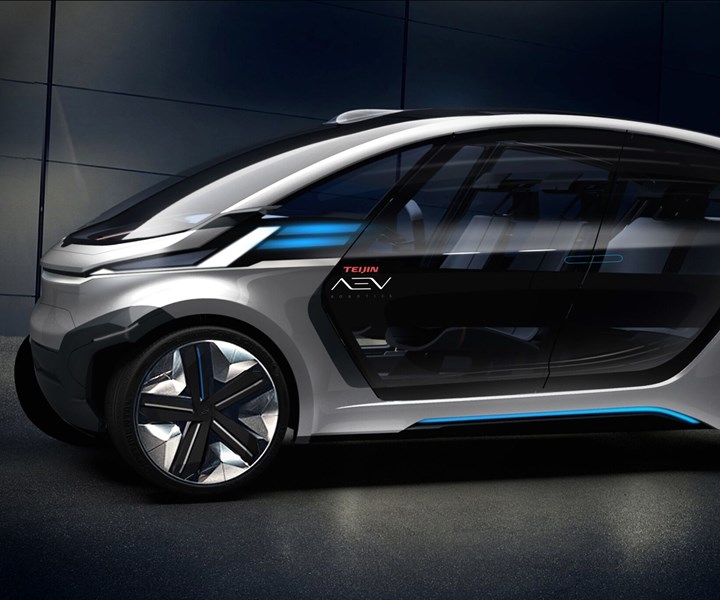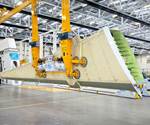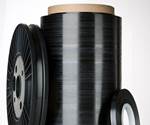Teijin and AEV Robotics to co-develop lightweight solutions for next-gen auto
AEV Robotics Modular Vehicle System components to use Teijin’s advanced materials such as polycarbonate resin, carbon and aramid fibers, and composites technologies.

AEV Robotics’ Modular Vehicle System to use advanced materials from Teijin.
Source | Teijin
Teijin Ltd. (Tokyo, Japan) has announced that it has signed a joint development agreement with an Australian venture AEV Robotics (AEV, Victoria, Australia) aimed at creating lightweight components and solutions for next generation transportation.
The components will use Teijin’s advanced materials such as polycarbonate resin, carbon and aramid fibers, and composites technologies owned by Teijin and its group companies including Continental Structural Plastics (Auburn Hills, Mich., U.S.) for innovative structural design. Teijin will also contribute specialized knowhow for heat management to optimize weight reduction and heat insulation and for sound absorption. Teijin will additionally apply expertise it has developed in supporting the Kogakuin University Solar Team’s participation in the world’s biggest solar car race.
A Modular Vehicle System by AEV will serve as the foundation for a de facto standard for next-generation vehicles that satisfy the Well-to-Wheel Zero Emission goal established by Japan’s Ministry of Economy, Trade and Industry (METI, Tokyo, Japan). AEV is concurrently developing an electric vehicle platform and autonomous driving system that realizes low-speed electric vehicle (LS-EV) for use in various fields, such as medical care, logistics and industry, as well as conventional transportation.
Teijin will present AEV’s Modular Vehicle System at the Automotive Engineering Exposition 2019 Nagoya, taking place July 17-19 in Nagoya, Japan.
Related Content
-
Bio-inspired EV underbody panel developed by TPI Composites, Helicoid Industries
Composite underbody panel for battery pack protection, made of stacked multiaxial noncrimp fabric, will serve high-volume commercial and automotive markets.
-
Aptera expands presence of solar electric vehicle into UAE
The UAE will provide an ideal environment to introduce the company’s solar-powered composites-intensive BinC vehicle internationally.
-
BMW Group to bring iX5 Hydrogen pilot fleet into service in 2023
A fleet of under 100 vehicles, featuring BMW fuel cell technology and 700-bar CFRP storage tanks, will be deployed for international demonstration and trial purposes.















